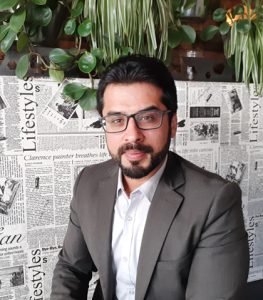Bid to unite Afghan communities in Australia
The conflict and disintegration of democracy and equality in Afghanistan over recent months is due, at least in part, to ethnic and religious rivalries that go back centuries.
Competing interests among the twenty-or-so ethnic groups in Afghanistan as well as the nexus between Sunni and Shia Islamic groups have undermined efforts to create a modern, democratic and secular nation.
 But a group based in Melbourne’s south-eastern suburbs is working to bridge these interminable and often tragic divides.
But a group based in Melbourne’s south-eastern suburbs is working to bridge these interminable and often tragic divides.
The Bakhtar Community Organisation founded was in 2017 as a way of bringing all of the Afghan ethnicities together under one umbrella.
“It’s the first Afghan-Australian secular organisation that is non-political and non-religious and is a response to the situation in Afghanistan,” says founder, volunteer CEO and Chair Bassir Qadiri.
“Part of what has happened in Afghanistan, the rise of the Taliban and the lack of effective government, is partly because of ethnic rivalries and disputes,” Bassir said.
“We see the main problem for us as the conflict between different ethnic communities. And we can see the result of this in what has happened in Afghanistan,” he said.
“We want to bring Afghan communities in Australia together and we want to integrate with Australian society and values.
“What we as Afghans in Australia have is a second chance to start a new life in a beautiful country. If we bring our problems here, it will be no good for anyone.
“If we can’t integrate within our own community, if we don’t accept each other, it will be more challenging to integrate with Australia, which is a multicultural country,” Bassir said.
The Bakhtar Community Organistion has the aim of becoming an umbrella organisation for Afghan communities and already had 900 registered members and 50 volunteers and staff.
Indeed, it is named after an ancient civilization that once encompassed and united much of Central Asia. And it includes Hazaras, Pashtuns, Tajiks, Uzbeks and even Sikhs among its board of directors.
The organisation uses the things Afghan communities have in common to unite them; things such music, poetry and history.
“And we want to connect with other communities through these things and through our cultural events,” Bassir said.
The organisation is endorsed as Deductible Gift Recipients by the Australian Taxation Office. It has also become a WDP (Work Development Permit) sponsor which support the communities vulnerable members to pay their debts through unpaid activities at Bakhtar.
The organisation is also is aiming to become a specialist NDIS service provider and it is working on family and domestic violence, mental health and elder abuse programs.
From its office in Dandenong and weekly outreach at the Clyde North Community Hub, It runs employment service with work placements run through the Holmesglen Institute as well as an interpreting service with more than 25 professional interpreters and a resettlement case work program.
During the COVID-19 pandemic, the organisation supported 600 vulnerable families in south-east Melbourne with emergency relief packages.
And it is working in partnership with refugee and migrant settlement agency AMES Australia to support recently arrived refugee evacuees from Kabul with interpreting and case management services.
As part of this work, the organisation has used its social media platforms to deliver cultural orientation programs and COVID messaging to the community.
“We also held about a hundred information sessions on COVID to the community and we are still working to educate the new arrivals, including providing interpreting services for people in quarantine,” Bassir said.
The organisation also produces a magazine twice a year, it runs an online library for Afghan communities as a well as a language school.
“Once the pandemic is over we will return to face to face language lessons so that the Dari and Pashtu languages are available to young people in our communities,” Bassir said.
Major events are also an important part of the organisation’s work.
“Over a year we would run three or four major events attracting up to 500 people and dedicated to addressing issues in the community,” Bassir said.
“For example, we run the Bakhtar Woman of the Year award, which is an acknowledgment and recognition of the position of women in the community and also a way of promoting gender equality and preventing violence against women,” he said.
“We also have the Bakhtar Youth of the Year award which tries to educate young people about our culture and also remind them of their responsibility. It also encourages people to be more engaged and inclusive.
Bassir considers himself a multi-ethnic person.
“In my family I have a combination of almost all Afghan ethnicities such as Hazara, Tajik and Pashtun,” he said. My mother has been a women right activist in past four decades in Afghanistan. She is my mentor and it is my mother’s footsteps that I am following.
“Mum was a women’s activist who set up schools for girls in the late 1990s. But she had to flee to Pakistan when the Taliban found out. The whole family returned in the 2000s.
“I believe in in gender and race equality. Everyone is equal and deserves opportunity. I am passionate about this,” he said
And for an Afghan in Australia, Bassir has had an unusual pathway to getting here.
He met his Afghan-Australian wife while studying French Literature in Paris as a scholarship student.
“I met my wife in the Netherlands, we got engaged and then married in Australia in 2009,” he said.
Bassir speaks seven languages and dialects and since arriving in Australia, he has won a string of community awards, including the Multicultural Victoria Award for Excellence, Casey’s Citizen of the Year, the Casey Local hero Award and a Gold Australia Day Award.
He is currently studying a Master’s Degree in Leadership at Deakin University.












